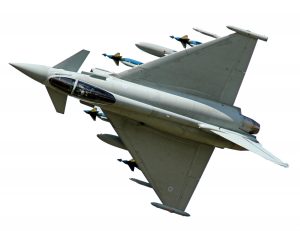Order of the day: Germany take its fair share of the alliance’s burden also financially, thus strengthening the European pillar in NATO…

Ronnie Macdonald / Wikimedia / Attribution 2.0 Generic (CC BY 2.0) / https://creativecommons.org/licenses/by/2.0/deed.en
Mike Pence, the American vice president, assumed the role of his boss at the celebrations for the 70th birthday of the military alliance NATO. Pence raved for minutes that Germany was doing too little for Europe’s security and had become dangerously dependent on Russia through the construction of the Nordstream2 gas pipeline. Donald Trump will have followed the speech with a smile, while German Foreign Minister Heiko Maas in Washington had to take harsh criticism from the US administration. Later, Maas set about defending Germany’s position, but this will hardly have met with any understanding in the White House.
The discussion is not new and the opposing positions are well known. Each NATO member is to spend two percent of the gross domestic product (GDP) on defense. This is a goal the NATO countries set themselves together – long before Trump – for the NATO summit in Prague in 2002. At that time, the Baltic states, Bulgaria, Romania and Slovakia were invited to join the Alliance. One condition was to invest “sufficient resources” in defense. The two-percent target was set again in 2014 at the NATO summit in Wales. That was after the annexation of the Crimea and the outbreak of war in Ukraine. The SPD politician Frank-Walter Steinmeier, today’s Federal President, was present as Federal Foreign Minister.
Chancellor Angela Merkel promised that Germany would at least gradually move closer to this goal. In fact, however, defense spending is currently only around 1.23% of economic output. And the goal of increasing this figure to 1.5% by 2024 will probably not be reached, especially since Federal Finance Minister Olaf Scholz even wants to cut defense spending from 2021 on. The balance sheet would only turn out better if Germany were to fall into recession – but this would cause other problems for the German economy. The two percent-mark is therefore repeatedly criticized because it is only a relative target but does not take the absolute sums into account. Greece, for example, can be proud of having even exceeded the two percent mark. However, this is only due to the weak economic performance of the southern European country. Alongside the US and Greece, the NATO states that currently meet the target include Great Britain, Poland and Estonia, as well as Lithuania, Latvia and Romania for the first time in 2018.
At 38.5 billion euros, defense spending is currently the second largest item in the federal budget. It accounts for about ten percent of total expenditure. This amount also includes payments to retired civilian and military personnel who are not expected to be involved in peacekeeping or peacekeeping measures. In addition, a distinction is made between operating expenses, operator solutions and defense-intensive expenses. Wage and salary payments to civilian and military personnel account for the largest share of operating expenses. In addition, there are expenses for the maintenance of materials and equipment as well as rental and leasing payments for real estate. Operator solutions include expenditure in connection with the privatization of sub-areas such as fleet management, which is made available to the Bundeswehr. Defense-intensive expenditures are for defense projects such as the Eurofighter or new frigates. The state of the Bundeswehr has also been under discussion for some time, despite these billions.
Industry is critical of the German government’s reluctance to address this issue. Dieter Kempf, President of the Federation of German Industries (BDI), called for Germany to “make an effective contribution to NATO’s defense capabilities” in a speech on the occasion of the signing of the North Atlantic Treaty 70 years ago. “This is not only about the financial resources of the Bundeswehr, but also of course,” said Kempf. “As Europe̕s largest nation and strongest economy, we benefit particularly from the North Atlantic alliance”. In addition, Germany is called upon to support the strengthening of the European pillar in NATO. “Europe is in an excellent economic and technological position, but so far it has contributed too little to a fair sharing of the burden within the alliance,” said the president of the industry’s umbrella organization.
German business representatives see closer cooperation with NATO partners, in particular France, as a contribution to strengthening the Alliance in arms projects. However, cooperation is made more difficult by Germany’s strict controls on arms exports, in the opinion of the BDI. France’s President Emmanuel Macron and Chancellor Merkel announced last year that they would jointly develop and procure two major military projects: the Future Combat Air System (FCAS) and the Main Ground Combat System (MGCS). Representatives of France, however, had expressed fears that both projects could be on the brink of collapse due to German practice in arms exports.
Klaus D. Oehler is the financial editor at Stuttgarter Zeitung
